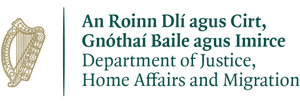In This Section
Introduction
If you are a non EAA/non Swiss national and wish to study a third level or English language programme in Ireland for a period longer than three months, you must choose an approved programme.
The Interim List of Eligible Programmes (ILEP) contains the current list of approved programmes.
Once you enrol on an approved course of study, you can apply for an immigration permission to study in Ireland.
The following types of programmes are listed in the ILEP:
Before you enrol on a programme
Education providers on this approved list must meet certain standards and comply with immigration policy. They will deliver a structured learning environment for students with qualified teachers. Providers must also meet requirements around student protection, class sizes and quality of education. For example:
Before you enrol on a programme, you are advised to do some research before paying any money to a provider or an agent. You should ask if the provider has a good reputation and know that the lowest price may not be the best deal. A provider must tell you about all fees in advance. If you have a question about a particular programme, the contact details for each provider are listed in the ILEP.
English language students
If you enrol on an English language programme listed on the ILEP you can register for a Stamp 2 immigration permission of up to eight months. You must:
You may extend your permission for another eight months if you enrol on another 25-week English language programme. Immigration officials will seek evidence of exam results and attendance. You will need to progress in your studies, enrolling on a programme with an exam at an increased level.
If you meet requirements, you may study English language courses for a maximum of three permissions of eight months each, a total of two years. After that time you must enrol on a higher education programme listed on the ILEP if you wish to remain as a student.
Higher education students
If you are a non EAA/non Swiss national and wish to come to Ireland to study at third level, the programme must be listed on the ILEP.
Higher education programmes range from level 6-10 on the National Framework of Qualifications (NFQ). The NFQ website provides more details about higher education award levels www.qqi.ie. All students must progress in their studies, enrolling on programmes at a higher level on the NFQ throughout their studies in Ireland.
Higher education providers set admission requirements, including the standard of English. If you have a question about a particular programme, the contact details for each provider are listed in the ILEP.
Foundation Programmes prepare international students to meet the minimum academic requirements to study a higher education programme in Ireland. Acceptance on a foundation course is linked to a conditional offer to study an Honours Bachelor degree at level 8 or a Postgraduate award at level 9 or 10.
Working as a student
If you wish to come to Ireland to study you must show proof that you have enough funds to support your stay without relying on casual work. This will be checked during a visa application or at registration.
Students with a valid Stamp 2 permission may work up to 20 hours a week while they are studying in Ireland. During the months of June, July, August and September and from 15 December to 15 January students may work up to 40 hours per week.
Work Placements and Internships
Students enrolled on courses leading to major awards at NFQ Level 7 (or equivalent) and above may undertake an internship/placement where this forms an integral part of an academic course listed on the ILEP. Students may work more than 20 hours per week in these placements/internships. Higher education institutions must ensure that the placements are appropriate to the nature and level of the academic programme.
The following conditions apply:
Higher education institutions should assist students should in finding placements and, where requested, provide a letter of confirmation to the student/employer indicating that the placement forms an integral part of a programme and does not affect terms and conditions of the student's Stamp 2 permission. The institution should also ensure that student's support or welfare needs are addressed during the internship or placement.
Further information
Further information for students coming to Ireland is provided under "Coming to study in Ireland".
More information is provided about visa and registration and on our page of Frequently asked questions for students.

